IELTS Preparation Guide: Unlocking Your Best Score
Welcome to Study Trekkers' Comprehensive IELTS Guide. The International English Language Testing System (IELTS) stands as one of the most renowned English language proficiency tests globally. It paves the way for individuals aiming to study, work, or migrate abroad, acting as a bridge to realizing their aspirations. This guide is meticulously curated to provide a thorough overview, aiding you in preparing for the test with utmost efficacy.
Enclosed below is a list of common questions often encountered by individuals during their IELTS preparation. Rest assured, you are not alone in seeking answers to these queries. We have curated a substantial resource, enabling you to traverse through these common inquiries seamlessly.
- What are the best ways to improve my IELTS speaking score?
- How can I write a high-scoring IELTS essay?
- What are the best strategies for tackling IELTS reading comprehension?
- How can I improve my IELTS listening comprehension?
- How can I build my IELTS vocabulary?
- Should I take the IELTS Academic or General Training Exam?
- Where can I find free IELTS mock tests?
Continue reading to unveil answers to these questions, coupled with an array of tips and strategies to enhance your performance and score in the IELTS exam.
IELTS Academic vs. IELTS General Training
-
IELTS Academic: The IELTS Academic exam evaluates your English skills for academic and professional contexts, like studying at a university or working in specialized jobs such as healthcare or law.
- IELTS General Training: IELTS General Training is tailored to gauge your English proficiency for everyday work and social situations, and is often required for vocational studies, overseas employment, or immigration to English-speaking countries like Canada, Australia, New Zealand, the UK, and the USA.
Test Components
- Total Duration: 2:45 Minutes
- Listening: 30 minutes
- Reading: 60 minutes
- Writing: 60 minutes
-
Speaking: 11–14 minutes
How to plan for a higher IELTS score
Starting from six months out and leading up to the final weeks before the exam, this roadmap outlines key activities and tasks you should focus on at each stage. Whether it's initial assessments, focused learning, practice tests, or final revisions, each step is crafted to address specific areas of improvement and to equip you with the skills needed to achieve a higher IELTS score. Don't leave your test prep to chance; follow this structured plan to make the most of your study time.
Study Trekkers IELTS Study Pack
Our curated list of books to help you prepare for the IELTS exam

ebook Download
IELTS Vocabulary and Reading Study Pack eBook
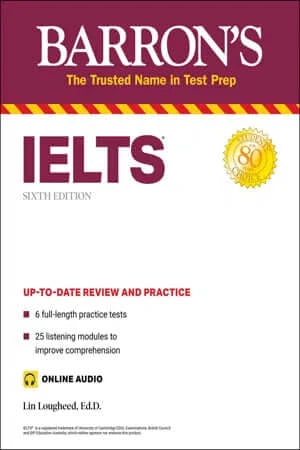
Sign up to read
IELTS (with Online Audio)
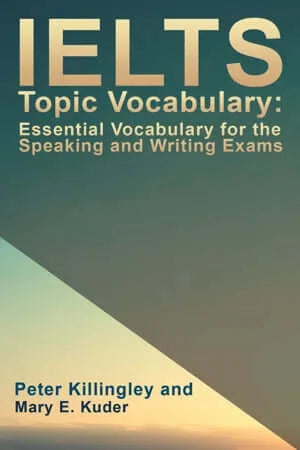
Sign up to read
IELTS Topic Vocabulary
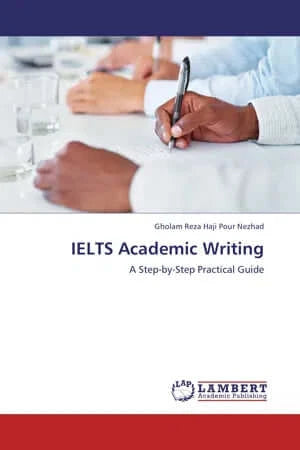
Sign up to read
IELTS Academic Writing
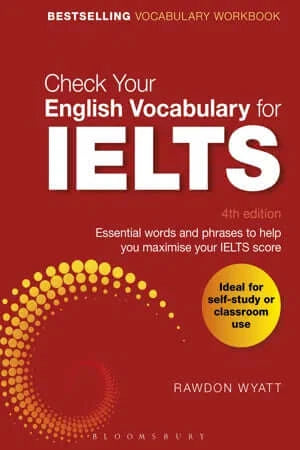
Sign up to read
Check Your English Vocabulary for IELTS
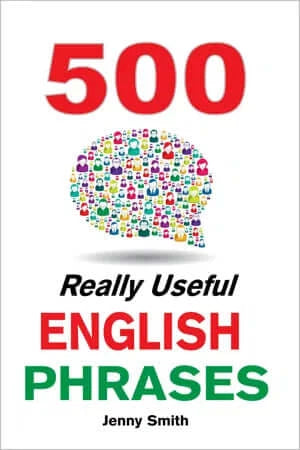
Sign up to read
500 Really Useful English Phrases
Preparation Timeline
-
6 Months Before the Exam
Assessment:
- Diagnostic Test: Start your IELTS journey with an initial diagnostic test to determine your current proficiency level in English. This test should ideally cover all the core sections of IELTS: Listening, Reading, Writing, and Speaking.
- Analyze Results: Carefully go through the results to identify your strong and weak areas. Knowing your weaknesses will help you tailor your study plan more effectively.
Planning:
- Craft a Study Plan: Using the insights gained from the diagnostic test, develop a detailed study plan. Allocate more time to areas where you're weaker, but also maintain practice in your stronger sections to keep them sharp.
- Set Goals: Create specific, measurable, achievable, relevant, and time-bound (SMART) goals for each section of the IELTS exam.
- Resource Gathering: Collect all the necessary study materials like textbooks, online courses, and practice tests. Make sure they are up-to-date and in line with the current IELTS syllabus.
By starting six months in advance, you give yourself ample time to understand the nuances of the exam, work on your weak areas, and build confidence.
-
3–4 Months Before the Exam
Focused Learning:
- Textbook Training: By this point, you should have a clear idea of which areas you need to focus on. Use IELTS-specific textbooks to delve deeper into each section—Listening, Reading, Writing, and Speaking.
- Online Courses: Consider enrolling in online courses that focus specifically on IELTS preparation. These courses often include lectures, practice exercises, and sometimes even one-on-one consultations.
- Regular Testing: Periodically, test yourself on the specific sections you've been focusing on to assess your improvement and adjust your strategies accordingly.
How to Improve IELTS Vocabulary?
- Academic Vocabulary: Prioritize learning words and phrases that are often used in academic settings, as the IELTS exam frequently includes academic texts and topics.
- Flashcards: Create flashcards of new words and phrases, complete with example sentences and synonyms. Review these regularly.
- Contextual Usage: Don't just memorize words—make sure to use them in sentences. Understanding how words fit into different contexts will help you use them effectively in the exam.
Grammar:
- Rule Review: Go through English grammar rules to understand sentence structures, tenses, and word usage.
- Practical Application: Practice applying these rules by creating your own sentences or correcting flawed ones. Grammar exercises in your textbooks and online courses can also offer good practice.
- Error Tracking: Keep a log of the most common mistakes you make in grammar and revisit the corresponding rules to avoid repeating them in the future.
By the time you reach the 3–4 month mark, you should be deep into your preparation and transitioning from broad-stroke learning into more detailed and focused training. This is the time to consolidate what you have learned and work on fine-tuning your skills.
-
1–2 Months Before the Exam
Practice Tests:
- Timed Conditions: Start taking full-length practice tests that simulate the actual exam conditions. Use a timer to ensure you're adhering to the time limits for each section.
- Realistic Environment: Try to take these tests in a quiet, undistracted setting that mimics the actual exam room. This helps you get used to focusing in an exam-like environment.
- Frequency: Aim to complete at least one practice test every week, gradually increasing the frequency as you approach the exam date.
Feedback:
- Error Analysis: After each practice test, go through each question you got wrong and understand why you made the error.
- Pattern Identification: Take note if you're repeatedly making the same types of mistakes—whether it's falling for distractors in the reading section or making consistent grammatical errors in the writing section.
- Adjust Strategy: Use this feedback to tweak your study plan. For example, if you notice that you're consistently struggling with time management, practice techniques to speed up your response times without compromising accuracy.
Speaking Practice:
- Daily Conversations: Make it a point to converse in English every day, even if it's just small talk with friends, family, or language exchange partners.
- Topic-based Practice: Choose IELTS speaking topics and practice speaking about them out loud. Record yourself, if possible, to review your performance.
- Feedback Loop: Seek feedback from proficient English speakers. They can provide insights into your pronunciation, vocabulary usage, and general fluency.
This phase of your preparation is crucial for refining your test-taking skills and patching up any lingering weaknesses. The focus now is less on learning new material and more on applying what you've learned under exam-like conditions. This is also the time to become intimately familiar with your own test-taking habits, making adjustments as needed to ensure you're as prepared as possible for the actual exam.
-
2 Weeks Before the Exam
Final Revision:
- Key Concepts: Revisit the fundamental ideas, rules, and structures that are essential for each section of the IELTS exam. Make flashcards or quick notes to reinforce these critical points.
- Vocabulary: Go over the academic words and phrases you've been collecting. Test yourself to see if you understand not just the meaning but also the context in which each should be used.
- Common Mistakes: Review the mistakes you've identified in previous practice tests or study sessions. Keep a checklist and ensure you're not repeating them.
Simulate Exam Conditions:
- Realistic Setting: Take at least 2–3 full-length practice tests in an environment that closely resembles the actual exam setting. This is not just about the absence of distractions; try to simulate the seating arrangement and desk space, as well.
- Timing: Use a timer for each section of the practice test to make sure you're finishing within the allotted time.
- Mental Preparation: These final simulation tests are also an opportunity for mental conditioning. Try to calm your nerves and focus your mind, just as you would need to on the actual exam day.
The final two weeks should be about fine-tuning your test-taking abilities and boosting your confidence. You've already laid the groundwork; now, you're ensuring that you can put your skills to use when it counts the most. Simulating exam conditions and revising key concepts serve as the final touches in your IELTS preparation journey.
-
1 Day Before the Exam:
Rest and Relaxation:
Sleep Well: Ensure you get 7-9 hours of sleep. A well-rested mind is essential for focus, memory retention, and decision-making during the exam.
Light Revision: Limit your review to essential points, main ideas, or key vocabulary. Avoid getting into detailed studies or new topics to prevent overwhelming yourself.
Stay Calm: Practice stress-relief activities such as yoga, meditation, or simple breathing exercises. Consider taking a light walk to clear your mind and maintain calmness.
Preparation for Test Day:
Gather Essentials: Prepare a checklist of items to carry, such as your ID, a passport photo, a printout of your test confirmation, and necessary stationery. Organize these items the night before.
Familiarize Yourself: Double-check the exam center's address, understand the commute, and plan to arrive earlier than the reporting time. Familiarize yourself with the test-day rules and regulations.
Healthy Eating: Consume nutritious and easily digestible foods. Hydrate well but avoid excessive liquids close to bedtime. Steer clear of too much caffeine or heavy meals that might disrupt your sleep.
Mental Conditioning:
Visualize Success: Spend some time visualizing a successful exam day. Imagine yourself answering questions confidently and managing time efficiently.
Stay Positive: Reinforce positive affirmations and trust your preparation. Remind yourself of the hard work you've put in and the progress you've made.
Distractions: Engage in activities that keep your mind off the exam pressure. Reading a novel, enjoying a favorite show, or spending time with family could help relax your mind.
Technology Check:
Review Formats: If your exam includes digital elements, ensure you are comfortable with the tools and platforms you'll use.
Charge Devices: Make sure electronic devices, if needed, are fully charged and functioning correctly. Keep necessary accessories like chargers or headphones ready.
Communication:
Reach Out: If you have last-minute questions or doubts, don’t hesitate to reach out to instructors or peers. Sometimes a quick clarification can boost your confidence.
The focus should be on maintaining a balanced state of mind and ensuring that logistical and technical aspects are sorted. Prioritize your well-being to walk into the exam room feeling refreshed, confident, and ready to succeed.
-
Need Help? IELTS Preparation Full Course
Learn MoreGet your personal best score with an IELTS Coach.
- Prepare for Academic or General Training IELTS
- Live online group and private classes
- Available 24/7
IELTS practice tips
A tips for acing each part of the IELTS test. Focusing on the exam's key elements—Listening, Reading, Writing, and Speaking—this portion provides you with tactics to help you excel in every category
IELTS Listening Tips
How to improve your IELTS listening comprehension:
- Practice Active Listening: Enhance your listening skills by using resources like podcasts and documentaries.
- Take Notes: Jot down essential points while listening to help answer questions later.
- Use the resources below on a daily basis to practice listening to native English speakers discuss a variety of topics.
+ YouTube Channels
VOA Learning English
YouTube Channel
Description: VOA Learning English provides news and stories in American English, allowing learners to practice listening while staying informed about global events.
EngVid
YouTube Channel
Description: EngVid offers free English lesson videos that cover grammar, vocabulary, pronunciation, IELTS, TOEFL, and more, helpful for those looking to improve various language skills including listening.
Rachel’s English
YouTube Channel
Description: Specializing in American English pronunciation, Rachel’s videos also offer an excellent resource for listening practice through various real-life conversations and vocabulary.
Oxford Online English
YouTube Channel
Description: Offering a variety of lessons on different aspects of English, including listening skills, Oxford Online English is a resourceful channel for comprehensive learning.
EnglishClass101
YouTube Channel
Description: Comprehensive resource with a vast variety of lessons on vocabulary, grammar, and real-life English expressions, helping learners improve listening and conversational skills.
English with Jennifer
YouTube Channel
Description: A series of English lessons ranging from grammar and vocabulary to pronunciation, aiding learners in improving listening and overall language proficiency.
EnglishAnyone
YouTube Channel
Description: Focused on helping learners speak English confidently and fluently, the channel provides strategies, lessons, and listening practices to enhance language skills.
Learn English with Let's Talk
YouTube Channel
Description: Offers free English lessons in vocabulary, grammar, and practical phrases to improve language skills, with various real-life context examples to improve listening.
Speak English With Vanessa
YouTube Channel
Description: Vanessa helps English learners feel confident and fluent in English, focusing on practical English usage and listening skills through conversations and stories.
English with Andi
YouTube Channel
Description: Dedicated to English language learning, the channel offers various lessons focusing on vocabulary, common expressions, and pronunciation to improve listening skills.
FluentU English
YouTube Channel
Description: FluentU makes learning English enjoyable and accessible through real-world videos like music videos, movie trailers, news, and inspiring talks.
Learn English with Emma [engVid]
YouTube Channel
Description: Emma offers clear and precise English lessons focusing on grammar, vocabulary, IELTS preparation, and more, making it easier to enhance listening and language skills.
+ Podcasts
VOA Learning English Broadcast
Podcast Link
Description: Short and easy-to-understand news stories that help in improving vocabulary and listening skills, especially focused on American English.
English as a Second Language (ESL) Podcast
Podcast Link
Description: A podcast featuring slow-paced English conversations on various topics, making it easier for non-native speakers to understand and learn new words and phrases.
A Way with Words
Podcast Link
Description: A lively podcast that explores language through history, culture, and family, fostering better listening skills and vocabulary through engaging stories and conversations.
The English We Speak
Podcast Link
Description: From BBC Learning English, this podcast provides short and sweet episodes focusing on everyday phrases and slang, helping learners to understand conversational English.
Business English Pod
Podcast Link
Description: Focusing on business English, this podcast is great for learning vocabulary and phrases used in professional settings, enhancing listening skills in a business context.
Culips English Podcast
Podcast Link
Description: A podcast that specializes in conversational English, providing listeners with exposure to native speaker accents, colloquialisms, and a variety of topics.
All Ears English Podcast
Podcast Link
Description: A channel focused on real-world English conversations to help listeners understand native speakers better and to engage in authentic English conversations.
Better at English
Podcast Link
Description: Offering real English conversations for intermediate to advanced learners, focusing on informal language, slang, and idiomatic expressions.
IELTS Reading Section Resources
Strategies for tackling IELTS reading comprehension
- Skimming and Scanning: Learn to quickly identify main ideas and details.
- Time Management: Don’t spend too much time on a single question.
+ Reading Study Pack
IELTS Writing Section Resources
How to write a high-scoring IELTS essay:
- Structure: Learn how to structure essays and letters/emails.
- Task Response: Ensure that you fully address all parts of the task.
IELTS Speaking Section Resources
Best ways to improve your IELTS speaking score:
Navigating the speaking section of the IELTS can be challenging, but with the right resources and strategies, you can effectively improve your performance. Below are essential areas of focus, tips, and techniques to enhance your IELTS speaking score.
+ Fluency and Coherence Tips
- Practice Continuously: Engage in regular speaking practices. Utilize language apps, join speaking clubs, or practice with a partner.
- Clear Communication: Prioritize conveying your thoughts clearly and logically, not merely speaking quickly.
+ Pronunciation Tips
- Accent Reduction: If your accent is strong, consider working on reducing it. Utilize online tools or consider professional guidance for accent reduction.
- Phonetic Exercises: Engage in exercises focusing on sounds and pronunciation to make your speaking more understandable.
+ Lexical Resource Tips
- Vocabulary Building: Regularly learn and practice new words related to common IELTS topics.
- Appropriate Word Usage: Learn the context in which words should be used to utilize your vocabulary effectively.
+ Grammatical Range and Accuracy
- Grammar Practice: Regularly practice various grammatical structures. Consider using grammar apps or websites for structured practice.
- Error Correction: Focus on learning from your mistakes. Seek feedback and make necessary corrections.
+ Question Practice
- Sample Questions: Practice answering a variety of IELTS speaking sample questions available online.
- Mock Interviews: Consider engaging in mock interviews to simulate the actual test environment.
+ Feedback and Review
- Seek Professional Feedback: Consider getting feedback from language experts or IELTS tutors to identify your strengths and areas for improvement.
- Self-Review: Regularly review and assess your progress. Utilize feedback for continuous improvement.
+ Additional Resources
- Language Exchange Platforms: Engage with native speakers on language exchange platforms for authentic conversation practice.
- YouTube Tutorials: There are numerous YouTube channels dedicated to IELTS preparation. Explore these for tips, strategies, and practice.
Last-Minute Tips
Relax the Day Before: Your brain needs rest to perform at its best.
Arrive Early: Make sure to get to your test center well ahead of time.
Remember, the key to acing the IELTS exam is consistent preparation and effective time management. Utilize all available resources, continually assess your performance, and don’t hesitate to seek expert guidance if you're struggling with specific sections. Good luck!
Additional Resources
- IELTS Test Coaching: English Online
- Official Website: IELTS
- Popular Books: Barron's IELTS, Cambridge IELTS series
- More Books: Perlego IELTS Book Collection
- Online Courses: Magoosh IELTS, IELTS Liz, IELTS Simon
- Practice Papers: Available on the official IELTS website and other educational platforms.
Language learning apps
Whether you're brushing up on your skills before taking an English language test or just beginning your language journey, these apps are a great place to start.
-
Rosetta Stone
Visit WebsiteWith decades of experience in the field, Rosetta Stone provides an immersive approach to language learning. Engage with real-life scenarios and conversations to fast-track your language proficiency.
-
Pimsleur Language Learning App
Visit WebsitePimsleur combines a highly researched language method with the ease and interactivity of language learning apps. It has programs to learn 51 languages online.
-
British Council English Online
Visit WebsiteLive Tutor: Learn English live with British Council teachers. They offer live online private lessons or group classes.
-
Duolingo
Visit WebsiteDuolingo makes language learning fun and accessible. Whether you're beginning from scratch or polishing up your existing skills, this platform offers a gamified approach to language learning that's both engaging and effective.
-
Quizlet
Visit WebsiteQuizlet offers study tools, flashcards, games and more to make language learning interactive and enjoyable. It's a great supplement to your primary language course.
-
Babbel
Visit WebsiteDesigned by language experts, Babbel focuses on practical conversation skills. This platform offers a variety of language courses tailor-made for different proficiency levels.
Language exchange websites
-
Tandem
Visit Website -
Hello Talk
Visit Website
*Logos and Names displayed are trademarks of their respective companies. We are an independent entity and are not affiliated with or endorsed by the services we curate. We may receive compensation from some of the links and advertisements displayed on our site. All rights reserved by the original owners.
